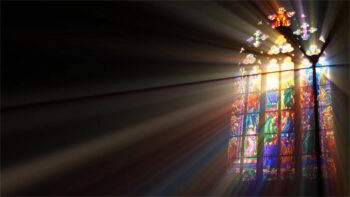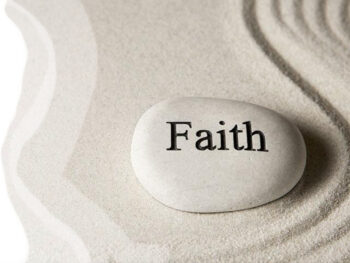Marist Spirituality: An Introduction – Part 9

By Fr David Kennerley SM
Instruments of Mercy
“… Lie at the heart of the emotion, time
Has its own work to do.
We must not anticipate
Or awaken for a moment.
God cannot catch us
Unless we stay in the unconscious room
Of our hearts.
We must be nothing,
Nothing that God may make us something…”
Patrick Kavanagh, Having Confessed

As we have seen, Father Colin often spoke of Mary as “the support of the Church at its birth and at the end of time.” This phrase provides Marists with their best set of glasses. Through one lens, ‘Mary in the Church at its birth,’ we see and practice the best approach to people – “hidden and unknown.” However, there is a second allied lens, “Mary in the Church in the end times.” Here we see our goal – to facilitate, as we are able, a person / people, to have a relationship with Christ, to be one with him. In a word, to know Mercy himself, and be ourselves instruments of him.
“The end times” for Colin, represented the ‘great gathering-in‘ preceding Christ’s second coming. This doesn’t mean the end is nigh! The scale alone of such an ‘assembling’ suggests a project taking a great length of time. For Colin, this was why Mary had waited so long before intervening to request a new congregation in the church, a family of her own – laity, religious, priests. Colin’s words point to someone highly attuned to what Mary as the mother of Christ most wants to see happen, even today.
In practice, being “instruments of mercy” in the end times, means that as individuals, a community, a Marist institution, resources are focused on the key essentials. It is not the time to focus on flash externals all about keeping up with others. It is THE time to concentrate on what builds interior life and character, and for making provision for the neglected, the most disadvantaged, those least valued.
Colin’s complete phrase was actually, “instruments of the divine mercies.” There is a sense here that we are living in such an “age of unbelief” that God now wants a renewed effort to reach out to a world increasingly ignorant of God, a society now all too comfortable without God. That in itself, is indeed an attitude, an act of divine mercy. This too further explains Mary’s concern, her intervention.
Essentially, our Marist ‘mission’ is to help people wavering in faith to persevere, and to sensitively encourage even the tiniest seeds of belief in those who have lost their faith or who have never known Christ. Mary, as the mother of all, not only wants this, but also helps us in this work of mercy. Given that faith is first and foremost a gift from God, what is chiefly asked of us are prayers and our positive example. In a “spirit of faith,” however, we remain open to playing a small part in little seeds landing lightly. Colin himself counselled never to impose too heavily nor ask too much at once (Founder Speaks 40:4). It is a journey into faith and trust for both of us. We have to take on board that it is not about me, nor only up to me!
This theme of instruments of mercy is one of Colin’s earliest insights into the Marist way. It is found in his homilies in the Bugey missions. As the elected leader of the Society of Mary he declared that Marists “must accommodate themselves to the times… we have to win people over by submitting ourselves to them” (FS. 158:1; 102.33). He also stressed, “we shall profess all those opinions which give greatest play to the mercy of God on account of the great weakness of poor human nature, but without falling into a laxist theology” (FS. 37.2).
On November 1st, 1840, when Fr Maxime Petit landed in New Zealand, he first fell to his knees, kissed the ground and said, “We are full of joy in knowing that we have come here to be the messengers of the divine mercies.” It seems that the first Marists in Aotearoa had taken this theme to heart!
A PRAYER
Jesus, Good Shepherd, Saviour,
help us to see
that all of us in your Church today
are called to be your labourers,
sent into the harvest of our times.
As Marists, help us to bring a mother’s
care and touch to this great work.
An Insight
“Mary wants to save all. What interests us is the sense of openness, of non-exclusion: even ungodly people are to be included. Thus, it becomes our vocation to hope for a Church that is based less on selection than on a universal call, one without any of the barriers we might set up. Mary invites us to prepare in hope for the Church of tomorrow” (Jean Coste, A Marian Vision of the Church, p.256).

The Practice
“Colin wants us to empty ourselves, so that, as far as possible, there are only Jesus, his Father and their Spirit working in and through us. Then egos, ambitions, sensitivities, self-seeking, self-regard, will not get in the way of God’s grace, of which we are to be ministers. We would be channels of that grace, as open as possible and not obstructing, not blocked by weeds and rubbish” (Justin Taylor, A Marist Reset, pp.96-97).
QUESTIONS TO PONDER
1. Ask yourself where is your mission (even missions!) today – is it local, further afield or overseas?
2. Who do we need more as missionaries today: religious and priests, or lay men and women facing much the same challenges as those struggling in faith and practice? What does this mean for you?

 Entries(RSS)
Entries(RSS)